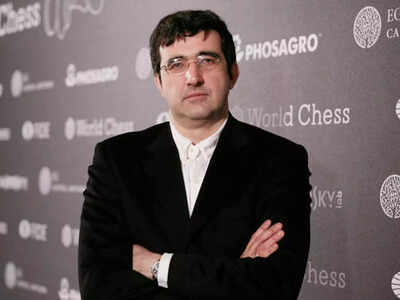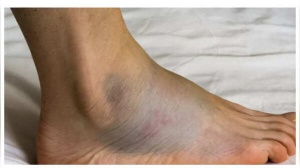In a deeply personal and public appeal, Grandmaster Levon Aronian has penned an open letter to Vladimir Kramnik, urging his former mentor and friend to reconsider his recent legal actions. The letter surfaces in the wake of Kramnik's defamation lawsuit filed in Geneva against Chess.com, Chessdom, and Czech Grandmaster David Navara, escalating tensions within the chess community.

Vladimir Kramnik in a file photo.
"Dear Vladimir Kramnik, forgive me for addressing you publicly," Aronian begins, setting a tone of respect and concern rather than animosity.
Aronian's letter is a blend of personal reflection and a plea for understanding. He acknowledges Kramnik's profound influence on his career, referring to him as one of his "chess parents" and attributing a significant portion of his chess acumen to the former World Champion. He fondly recalls Kramnik's past triumphs, from his victories over Garry Kasparov and Peter Leko to navigating the controversy surrounding the "Toiletgate" match against Veselin Topalov, highlighting his strength and resilience in the face of adversity.
Aronian also addresses what he perceives as a worrying shift in Kramnik's behavior. "You are fighting your own demons," he writes, acknowledging the emotional strain Kramnik is experiencing due to his staunch stance against alleged cheating in online chess.
The current dispute arose after Kramnik suggested that Navara had cheated, leading Navara to publicly express the severe impact of the accusations on his mental well-being. Kramnik responded by demanding either legal action or silence, eventually leading to the defamation lawsuit – a move met with criticism from various corners of the chess world.
Grandmasters such as Pavel Eljanov have voiced their support for Navara, with Eljanov stating that "David is one of the most honest people in chess," echoing a common sentiment.
Aronian concludes his letter with a call for unity, stating, "We are a family... let us start from a fresh page." In a chess world grappling with division, his message underscores the importance of understanding and the potential for reconciliation.
Newer articles
Older articles
 Emma Raducanu Shuts Down Carlos Alcaraz Dating Rumors with Playful Wimbledon Press Conference Quip
Emma Raducanu Shuts Down Carlos Alcaraz Dating Rumors with Playful Wimbledon Press Conference Quip
 Rishabh Pant's "Revolutionary" Cricket Style Hailed by Greg Chappell
Rishabh Pant's "Revolutionary" Cricket Style Hailed by Greg Chappell
 5 Silent Signals of Prediabetes: Recognize the Warning Signs Before a Blood Test
5 Silent Signals of Prediabetes: Recognize the Warning Signs Before a Blood Test
 Wimbledon 2025: Broadcast Guide for India and US Viewers - Dates, Prize Money, and Streaming Details
Wimbledon 2025: Broadcast Guide for India and US Viewers - Dates, Prize Money, and Streaming Details
 Smith Targets Second Test Return After Innovative New York Rehab
Smith Targets Second Test Return After Innovative New York Rehab
 Gavaskar Calls for Kuldeep Yadav's Inclusion in Second Test Amid Bumrah Fitness Doubts, Cites Birmingham Pitch Advantage
Gavaskar Calls for Kuldeep Yadav's Inclusion in Second Test Amid Bumrah Fitness Doubts, Cites Birmingham Pitch Advantage
 Skin Signals: 7 Unexpected Signs of Heart Disease You Should Know
Skin Signals: 7 Unexpected Signs of Heart Disease You Should Know
 India Poised for Dengue Breakthrough as Vaccine Candidate Nears Trial Completion
India Poised for Dengue Breakthrough as Vaccine Candidate Nears Trial Completion
 Science-Backed Steps to a Healthier Heart: 5 Simple Habits for a Stronger You
Science-Backed Steps to a Healthier Heart: 5 Simple Habits for a Stronger You
 FIFA Club World Cup 2025: Upsets, Messi Magic, and 2026 World Cup Concerns Emerge From Group Stage
FIFA Club World Cup 2025: Upsets, Messi Magic, and 2026 World Cup Concerns Emerge From Group Stage